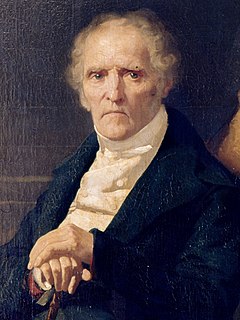A Quote by Mary Stocks, Baroness Stocks
[On women as priests:] It has always seemed very odd to me that this particular sphere of activity should remain a male closed shop, seeing that, to judge from church attendance, women are the more religious sex - while our criminal statistics make quite clear that they are the least wicked.
Related Quotes
Marjan. I have told him tales of good women and bad women, strong women and weak women, shy women and bold women, clever women and stupid women, honest women and women who betray. I'm hoping that, by living inside their skins while he hears their stories, he'll understand over time that women are not all this way or that way. I'm hoping he'll look at women as he does at men-that you must judge each of us on her own merits, and not condemn us or exalt us only because we belong to a particular sex.
Without seeing any reason to believe that women are, on the average, so strong physically, intellectually, or morally, as men, I cannot shut my eyes to the fact that many women are much better endowed in all these respects than many men, and I am at a loss to understand on what grounds of justice or public policy a career which is open to the weakest and most foolish of the male sex should be forcibly closed to women of vigor and capacity.
There was danger at times that women might not be judged by the highest standards, but more leniently because of their sex. "She is a remarkably good chemist--for a woman," you might hear a man say. It seemed to me essential, if the ablest young women scholars were to achieve the best work of which they were capable, that they should be held to the most rigorous standards. ...To advance, a woman must do at least as good work as her male colleagues, usually better.
In general, in the matters that relate to theology or behavior, people to one another, Paul was obviously biblically correct. But when he said that women should always cover their hair or that women should not teach men, women should not have leadership positions in the church, women should not speak in the church, I don't' think that those writings of Paul can be extracted by themselves to stand alone. Also, Paul said that women should be subservient to their husbands but if you read a couple of verses down it says husbands should treat their wives as equals.
It just struck me as really odd that there were all of these conversations going on about what young women were up to. Were young women having too much sex? Were young women politically apathetic? Are young women socially engaged or not? And whenever these conversations were happening, they were mostly happening by older women and by older feminists. And maybe there would be a younger woman quoted every once in a while, but we weren't really a central part of that conversation. We weren't really being allowed to speak on our own behalf.
Paris had more sex than most church-laden places, and more church than most sex-laden places. Parisians crowed about Travail-Famille-Patrie while frequenting brothels. They enjoyed visiting drag shows while clamping down on homosexuality. They celebrated romance while treating women like dirt. Many of these contradictions existed elsewhere, but I do think Paris ruled the hypocrisy championships.
To confound the tyranny of man there should exist for a century a third sex, both male and female, and stronger than men. This new sex would prove with the lash that men as well as women are made for its pleasure; and then you would hear men protesting against the tyranny of the hermaphrodite sex and admitting that strength should not be the sole rule of right. Just why do they refuse to grant the women the independence which they would demand from the third sex?
Since we all came from a women, got our name from a women, and our game from a women. I wonder why we take from women, why we rape our women, do we hate our women? I think its time we killed for our women, be real to our women, try to heal our women, cus if we dont we'll have a race of babies that will hate the ladies, who make the babies. And since a man can't make one he has no right to tell a women when and where to create one
The bonding of women that is woman-loving, or Gyn/affection, is very different from male bonding. Male bonding has been the glue of male dominance. It has been based upon recognition of the difference men see between themselves and women, and is a form of the behaviour, masculinity, that creates and maintains male power… Male comradeship/bonding depends upon energy drained from women.
In existing criminology there are concepts: a criminal man, a criminal profession, a criminal society, a criminal sect, and a criminal tribe, but there is no concept of a criminal state, or a criminal government, or criminal legislation. Consequently what is often regarded as "political" activity is in fact a criminal activity.
I never expected to get the Tom Jones treatment and it amazes me that I do. Strangely it's women who throw their underwear at me when I'm performing live. My male fans tend to be quite shy. My female fans are wild. I never know what to do with all the lingerie that lands at my feet. Maybe I should open a shop.
In the wars against Revolutionary and Napoleonic France, as in so many later conflicts, British women seem to have been no more markedly pacifist than men. Instead, and exactly like so many of their male countrymen, some women found ways of combining support for the national interest with a measure of self-promotion. By assisting the war effort, women demonstrated that their concerns were by no means confined to the domestic sphere. Under cover of a patriotism that was often genuine and profound, they carved out for themselves a real if precarious place in the public sphere.






































